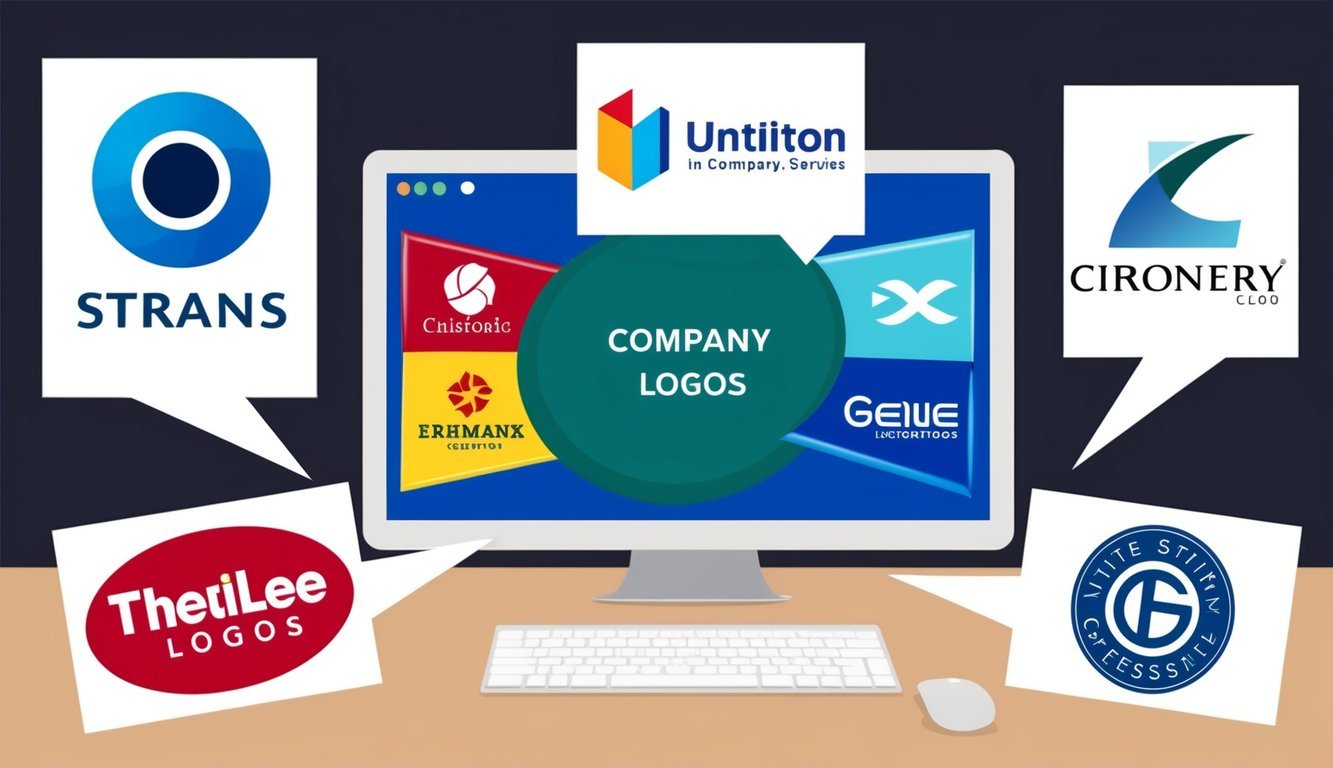“`xml
Thinking about taking your career up a notch? Mergers and acquisitions (M&A) programs might just be what you need! These courses are all about giving you the skills to thrive in this exciting arena, covering everything from strategy to execution.

By diving into an M&A program, you’ll pick up essential know-how that can set you apart in the business world. You’ll learn to evaluate companies, nail negotiations, and navigate the complex maze of merging organizations.
Whether you’re an industry veteran or just starting your journey, there’s an M&A course waiting to help you hit your goals.
1) Harvard Business School (M&A Program)

Want to get the hang of mergers and acquisitions? Look no further than Harvard Business School’s M&A program! This top-tier course offers a look inside the entire M&A process.
You’ll learn all about strategy, valuation, and deal execution.
The curriculum covers everything from pre-merger planning to what happens next after the merger.
Perfect for those aiming to make savvy deals and enhance company value!
And here’s the kicker—you get to study right on the HBS campus, surrounded by other driven professionals just like you! The program fee includes your tuition and all the materials you’ll need.
Curious how global M&As change the business landscape? This program also tackles that.
You’ll learn how companies leverage M&As to get ahead and capture market share.
No matter if you’re involved with a massive public enterprise or a smaller private entity, this program is geared to provide you with the tools you need to make that next M&A deal a resounding success.
2) Wharton School (M&A Specialization)

Want to learn from the best in the business? Check out Wharton’s M&A programs! Their offerings are top-notch, designed to help you master the art of mergers and acquisitions.
Jump into their Mergers and Acquisitions program, which covers all the crucial aspects of M&A deals.
This course dives into strategy, management, economics, and finance within the M&A world.
If you’re after something deeper, you’ll want the M&A and Corporate Development Strategies program.
This one’s ideal for business leaders looking to harness M&A for growth.
And for those still in school, Wharton offers a Corporate Development: Mergers and Acquisitions course as part of their regular curriculum, taught by seasoned faculty who know the ins and outs of M&A deals.
With Wharton’s top-tier programs, you’ll gain the skills and knowledge that can set you up for success in the fast-paced world of mergers and acquisitions.
No matter your level of experience, there’s a course just for you!
3) INSEAD (M&A and Corporate Strategy)
Looking to boost your M&A skills? Check out INSEAD’s M&A and Corporate Strategy program.
It’s loaded with cutting-edge research on portfolio growth, restructuring, and strategic alliances.
You’ll tackle key issues through lectures, case studies, and group projects.
This program equips you with practical tools to navigate M&A challenges successfully.
INSEAD also has an online M&A Success Strategies course.
This one helps you identify the best times for an M&A based on value-creation opportunities.
You’ll learn how to evaluate acquisition targets and understand synergies, plus get strategies for structuring deals to mitigate risks.
Both programs tap into INSEAD’s deep expertise in corporate strategy and M&As, giving you new skills and a network of peers to support your M&A journey.
4) London Business School (Corporate Finance & Strategy)
Ready to sharpen your M&A skills? Check out London Business School’s Mergers and Acquisitions program.
It’s a go-to for executives wanting to enhance their know-how.
This five-day course goes deep into the nitty-gritty of M&A deals.
You’ll learn about corporate strategy, industry economics, and finance, plus get the scoop on valuation and what to do post-deal.
It’s an intensive ride, but by the end, you’ll have a solid handle on the M&A process.
You’ll be primed to spot great opportunities and find the right business partners.
What’s cool? It’s not all theory.
You’ll work on real-world case studies and learn from industry experts.
This hands-on experience helps you apply what you’ve learned in your own work.
When you finish, you’ll have the tools to make smart M&A decisions and know how to add value to your company through strategic deals.
It’s a fantastic step toward leveling up your career in corporate finance and strategy.
5) Columbia Business School (M&A Workshops)

Want to learn from some of the best in mergers and acquisitions? Hit up Columbia Business School’s M&A workshops.
They offer top-notch programs led by experts in the field.
Their Mergers and Acquisitions Program is a four-day immersive experience into M&A intricacies.
You’ll be hands-on with real-world cases and guided by world-class faculty.
If online courses are more your thing, try the Mergers and Acquisitions (Online) course.
It covers everything from sourcing deals to closing transactions, along with analyzing the pros and cons of M&A.
For a deeper dive into the technical stuff, consider their Mergers and Acquisitions Transactions course, which focuses on deal structuring and accounting.
You’ll even learn how to model M&A transactions!
No matter what level you’re at or your learning preference, Columbia Business School has an M&A program that’s got your back.
6) Chicago Booth (Strategic M&A)

Looking to elevate your M&A game? Check out Chicago Booth’s Mergers and Acquisitions program.
It’s perfect for execs keen on sharpening their deal-making skills.
This course arms you with the know-how to handle M&A like a pro.
You’ll learn how to identify worthwhile deals and steer clear of the bad ones.
Plus, get insights on how to ensure your acquisitions succeed post-signing.
Chicago Booth’s top-notch finance professors lead the program.
They’ll guide you through key topics like valuation and deal structures.
You’ll even dive into real-world cases to see M&A in action.
When you wrap up, you’ll have a solid grasp of the entire M&A process—from strategy to execution—ready to tackle complex deals with confidence.
If you want to delve deeper, consider their Global Advanced Finance Program.
It touches on M&A and other essential finance topics over two years and is tailored for senior professionals looking to enhance their expertise.
Understanding Mergers and Acquisitions
Mergers and acquisitions are complex yet fascinating business transactions that reshape companies and entire industries.
They require careful planning, analysis, and execution to create value and hit strategic goals.
Key Concepts and Terminology
M&A deals have their own flavor.
A merger joins forces between two companies, while an acquisition is when one company buys another.
Here are some key terms to get familiar with:
- Due diligence: Checking out a company before committing to buy
- Synergies: Cost savings or new opportunities that arise from combining forces
- Hostile takeover: Buying a company without its friendly consent
- Vertical integration: Purchasing suppliers or customers
- Horizontal integration: Buying out competitors
M&A programs will teach you how to navigate these waters.
You’ll learn to spot good targets and steer clear of the not-so-great ones.
Why Companies Pursue M&A
Companies jump into M&A for various reasons, with growth being a primary driver.
Buying another company can quickly expand your reach and size.
Other common motivations include:
- Acquiring new tech or products
- Breaking into new markets
- Reducing competition
- Cutting costs through economies of scale
- Diversifying to manage risks
M&A can be a faster route compared to organic growth, but it’s not without risks.
Not every deal brings the expected value, and that’s why acquiring M&A strategies is essential for business leaders.
Choosing the Right M&A Program

Picking the right M&A program? You’ll want to consider what each course offers and how they deliver it.
Find a program that fits your schedule and learning style.
Evaluating Program Curriculum
When you’re scouting M&A programs, take a close look at what they cover.
The best programs will dive into deal strategy, valuation, and negotiation.
You’ll want to get comfortable with due diligence and post-merger integration too.
Wharton’s M&A program is a solid example.
It covers all these topics and includes real-world case studies to help apply your new knowledge.
Also, check if the program gives you any hands-on practice, like simulations or group projects.
These activities can really boost your learning experience.
Considerations for Online vs. In-Person Programs
You’ve got options! Online and in-person M&A programs each come with their own set of advantages.
Online courses, such as the Corporate Finance Institute M&A Modeling Course, offer you flexibility—learn at your own pace and fit it around your work schedule.
Plus, they tend to be more affordable.
In-person programs, like the Columbia Business School’s M&A Program, offer great networking opportunities.
You’ll meet other professionals and learn from their experiences, plus the face-to-face interactions with instructors are priceless.
Think about your own learning style: do you prefer to study solo or thrive in a group setting? Your choice might depend on that.
Frequently Asked Questions

M&A programs come in all shapes and sizes, from online certificates to full-fledged university degrees.
Top schools and firms have a range of options to fit different needs and career aspirations.
What are some top-rated M&A certificate programs you can enroll in online?
You can find some fantastic online M&A certificates from well-known schools.
Harvard Business School’s Mergers and Acquisitions program is a favorite.
Another excellent option is Wharton’s M&A specialization.
Can you find M&A courses online at no cost, and are they any good?
Sure, there are free M&A courses out there, but their quality can vary widely.
Some platforms might offer basic introductory courses for you to try out.
However, you usually get more depth and value from paid courses offered by reputable schools.
Which universities offer the best Masters programs in M&A?
INSEAD’s M&A and Corporate Strategy program has a great reputation.
London Business School’s Corporate Finance & Strategy course is another top pick.
How do the Big 4 accounting firms compare in their M&A services?
The Big 4 all offer M&A services, but each one brings something different to the table.
Deloitte and PwC often get labeled as leaders, but KPMG and EY also boast strong M&A teams.
What are examples of highly successful mergers in business history?
Disney’s acquisition of Pixar back in 2006 is often hailed as a massive win.
Exxon and Mobil’s merger in 1999 created a powerhouse in the energy sector.
And who can forget Google’s purchase of Android in 2005? That one changed the game!
What should you study if you want to specialize in mergers and acquisitions?
Focus on finance, accounting, and strategy.
Columbia Business School’s M&A workshops cover these crucial areas, including valuation, deal structuring, and post-merger integration.
“`

